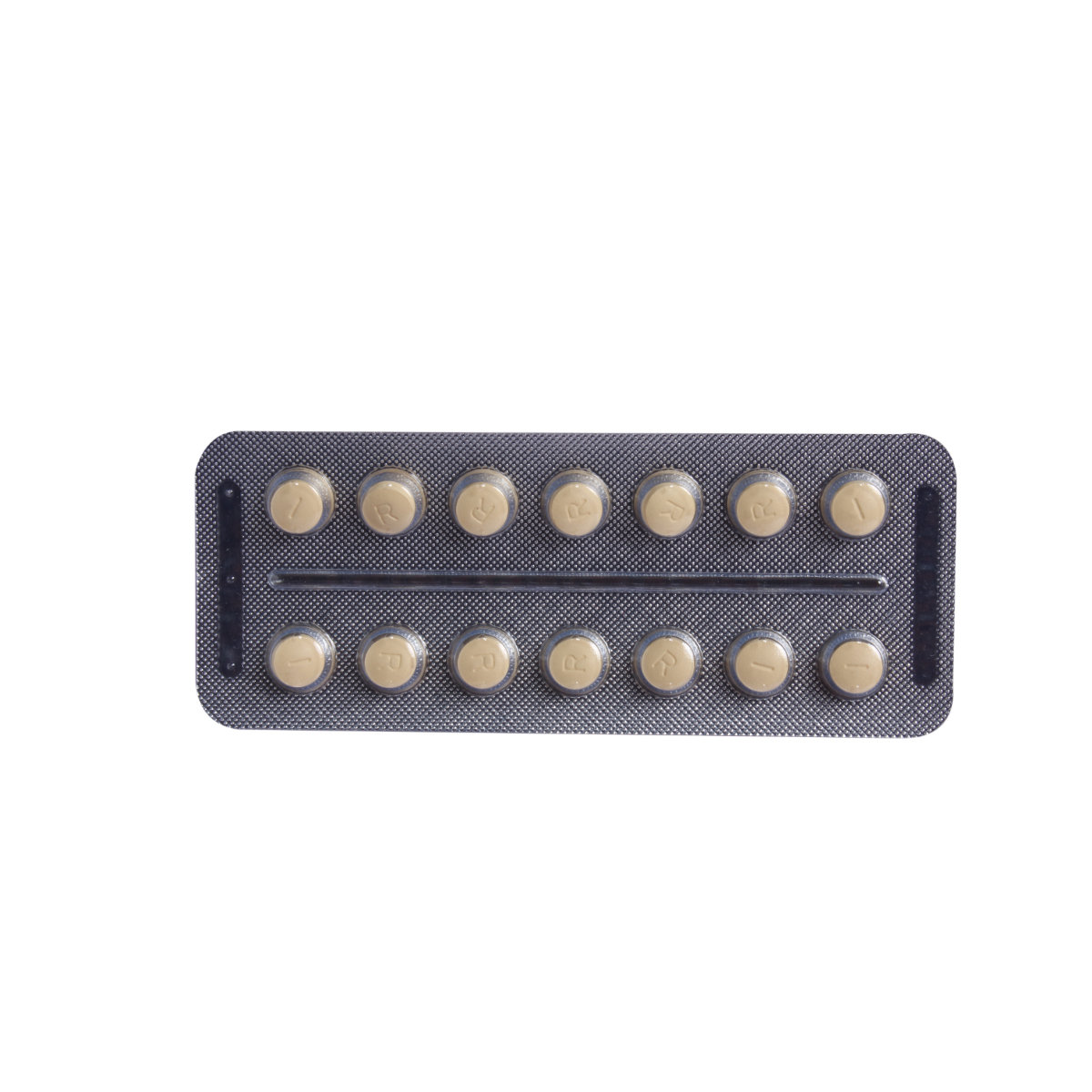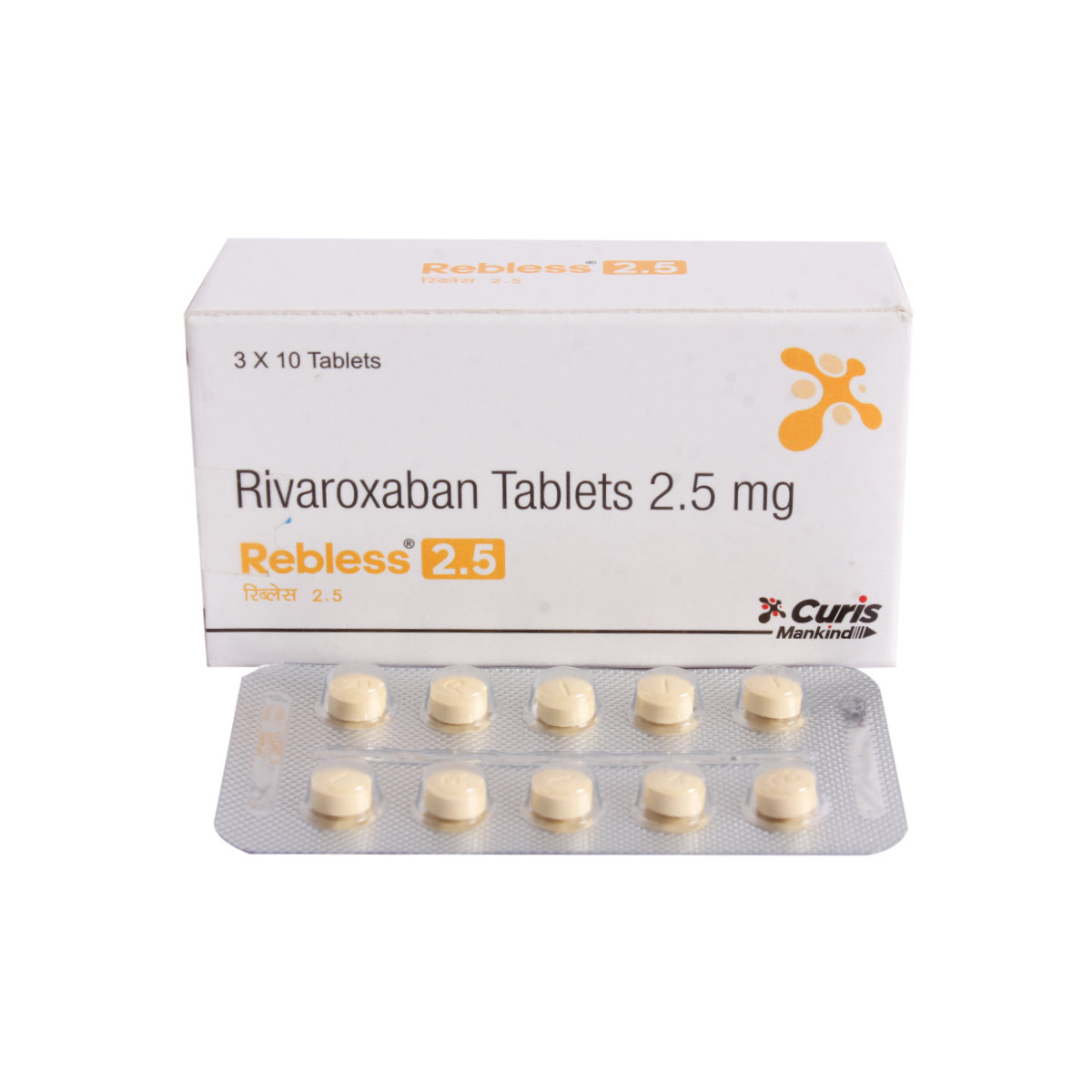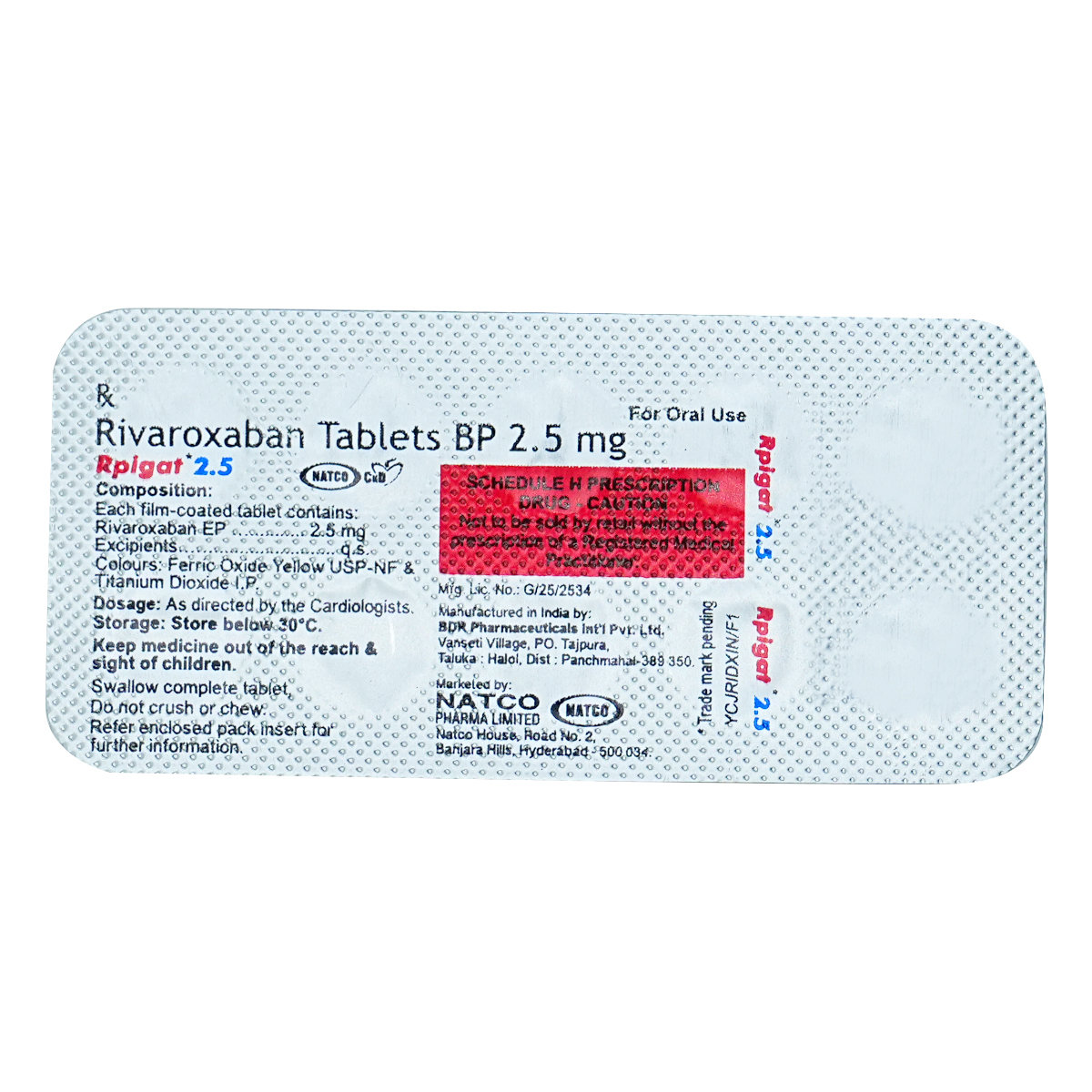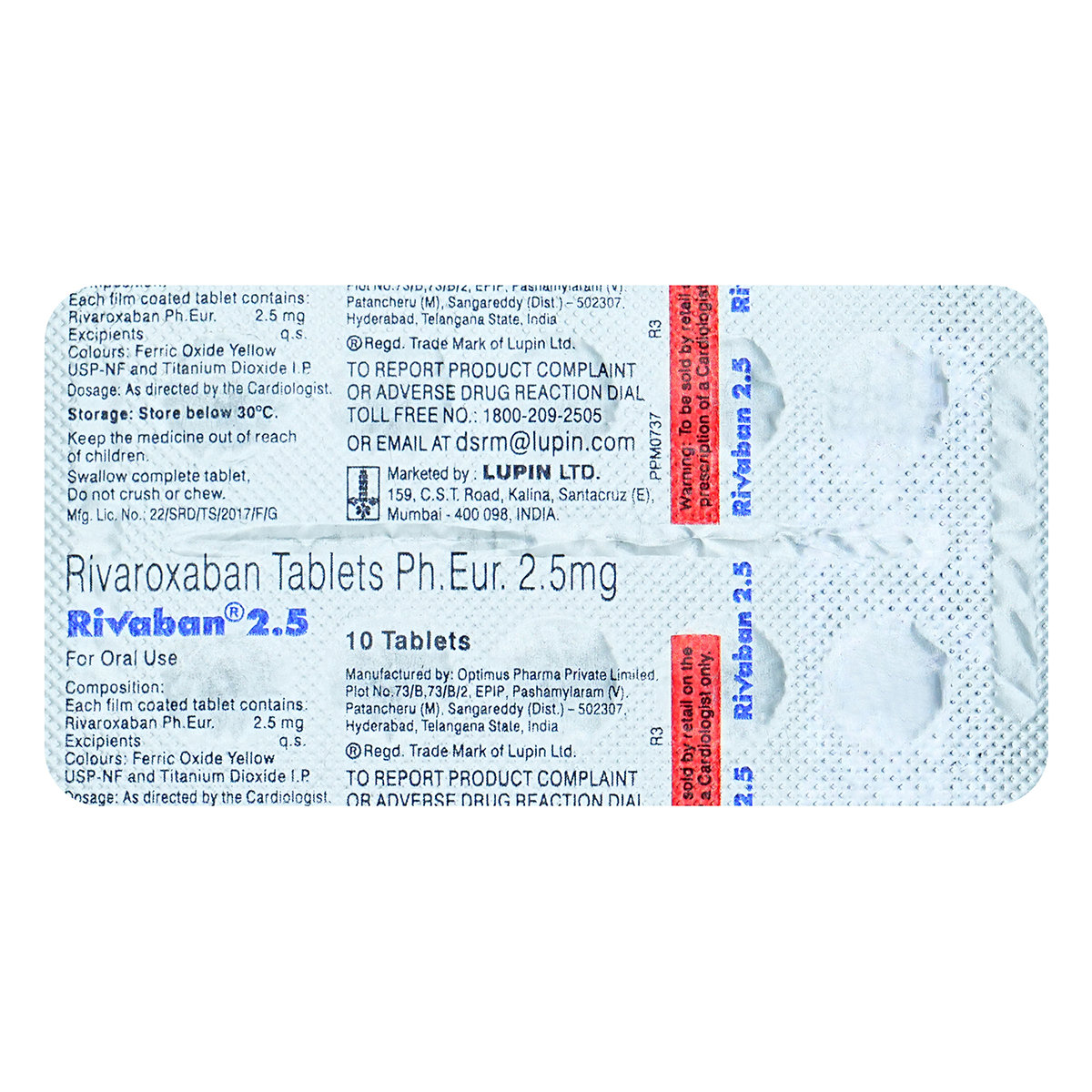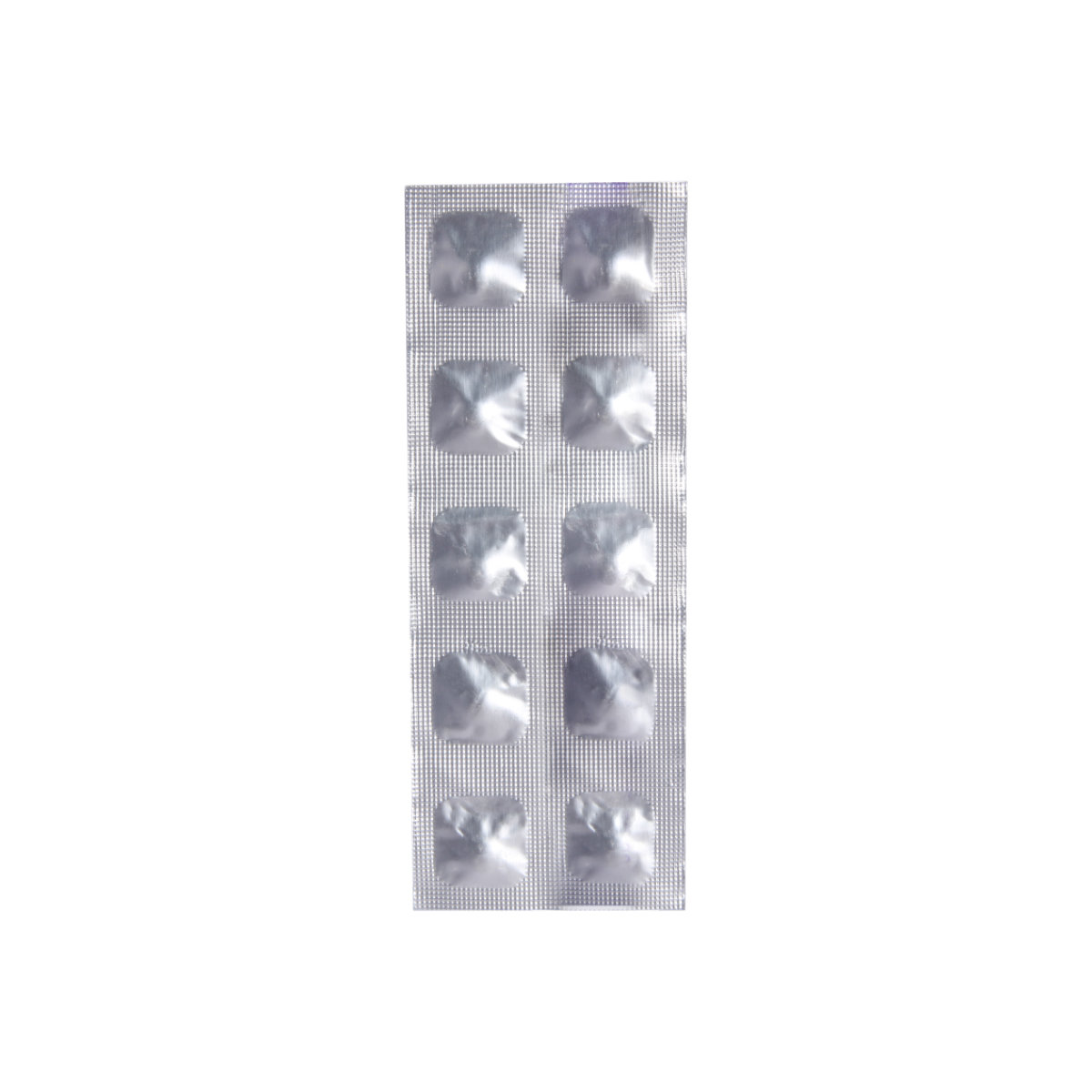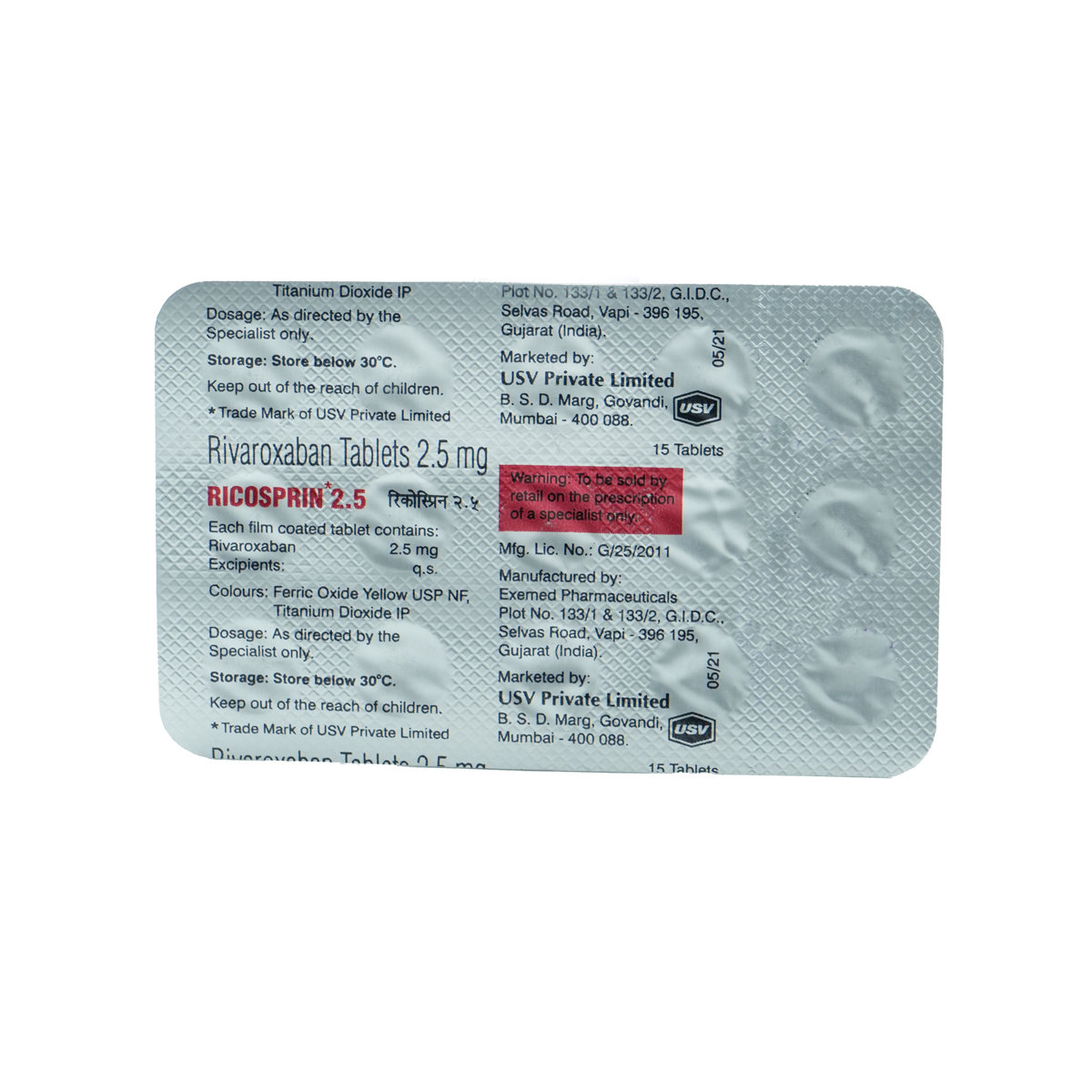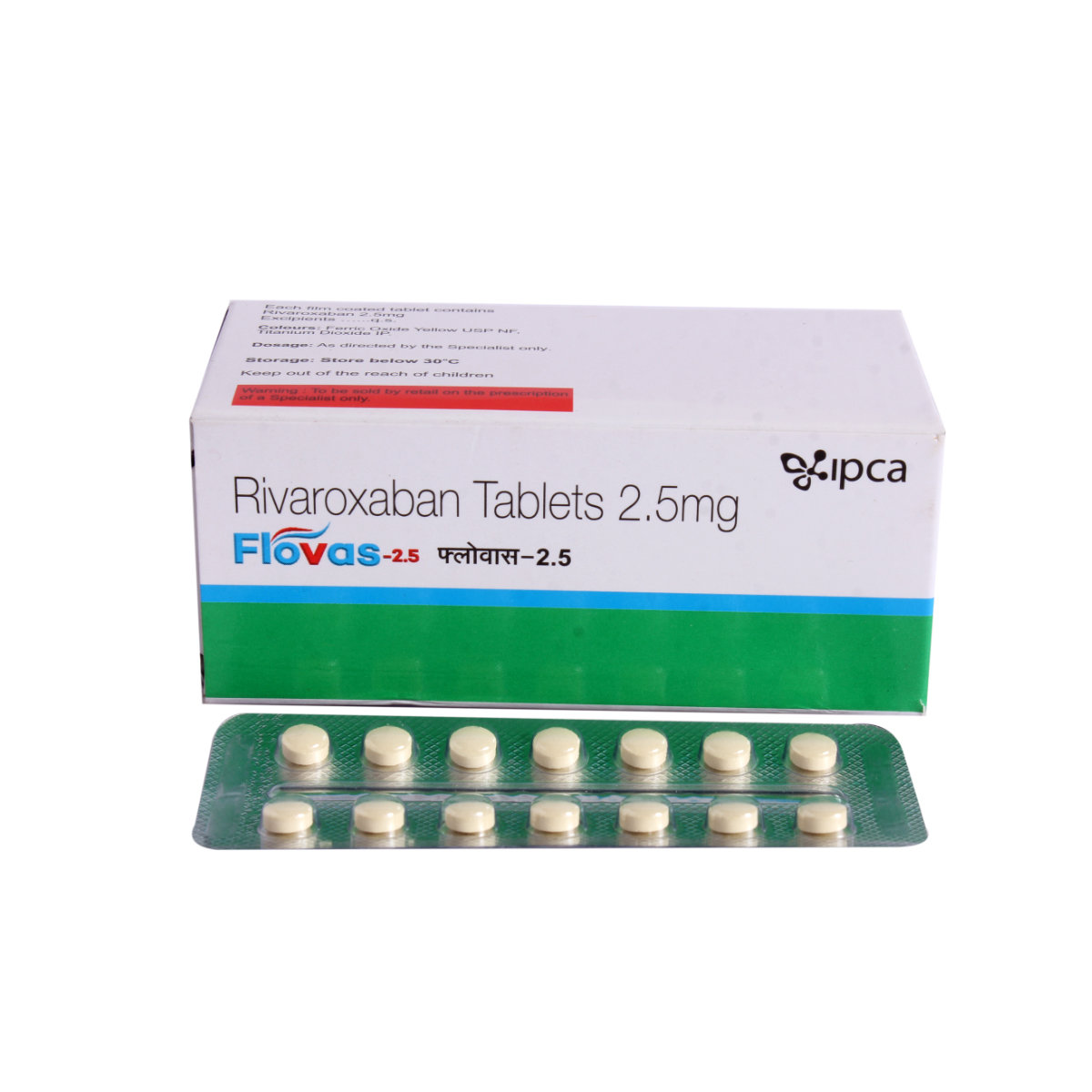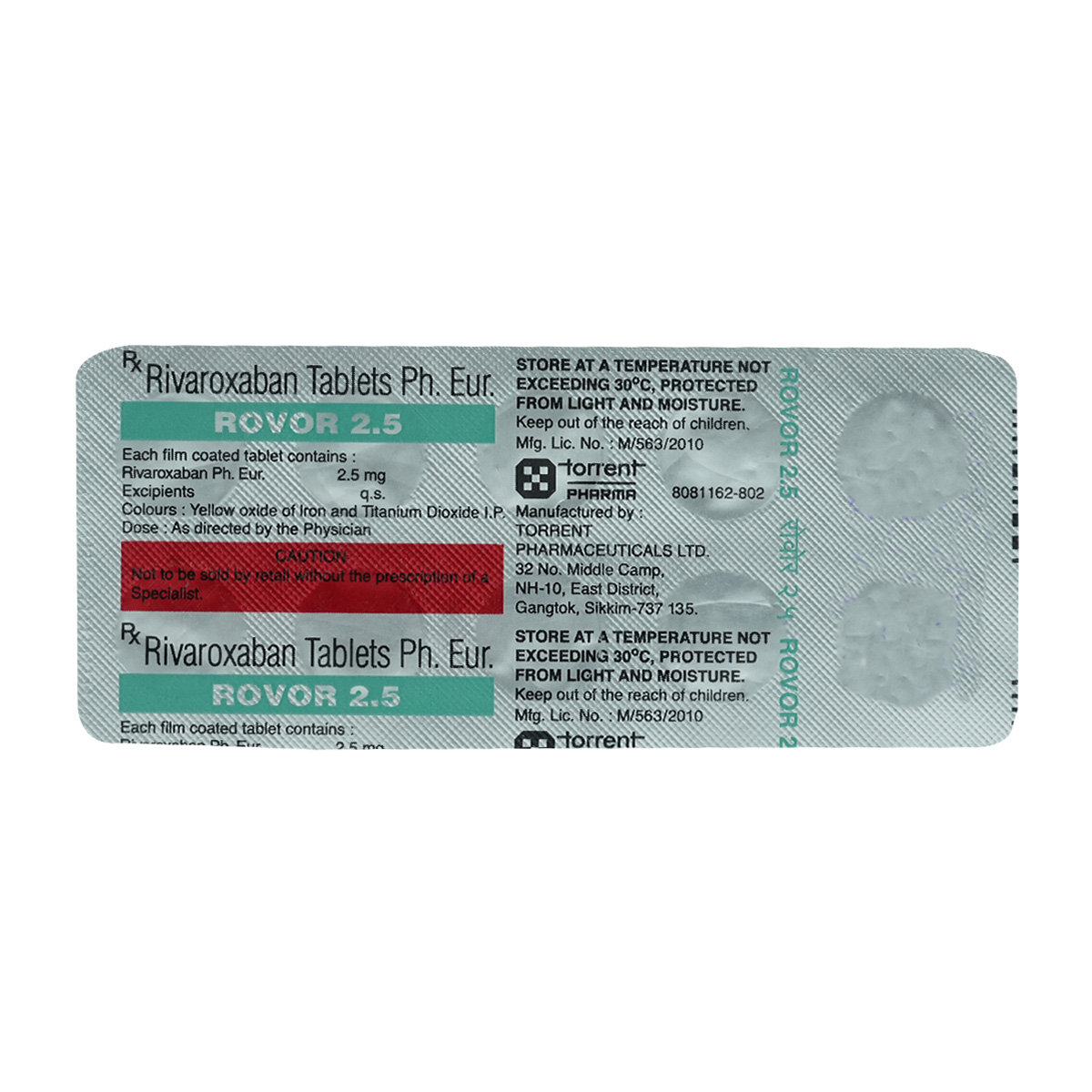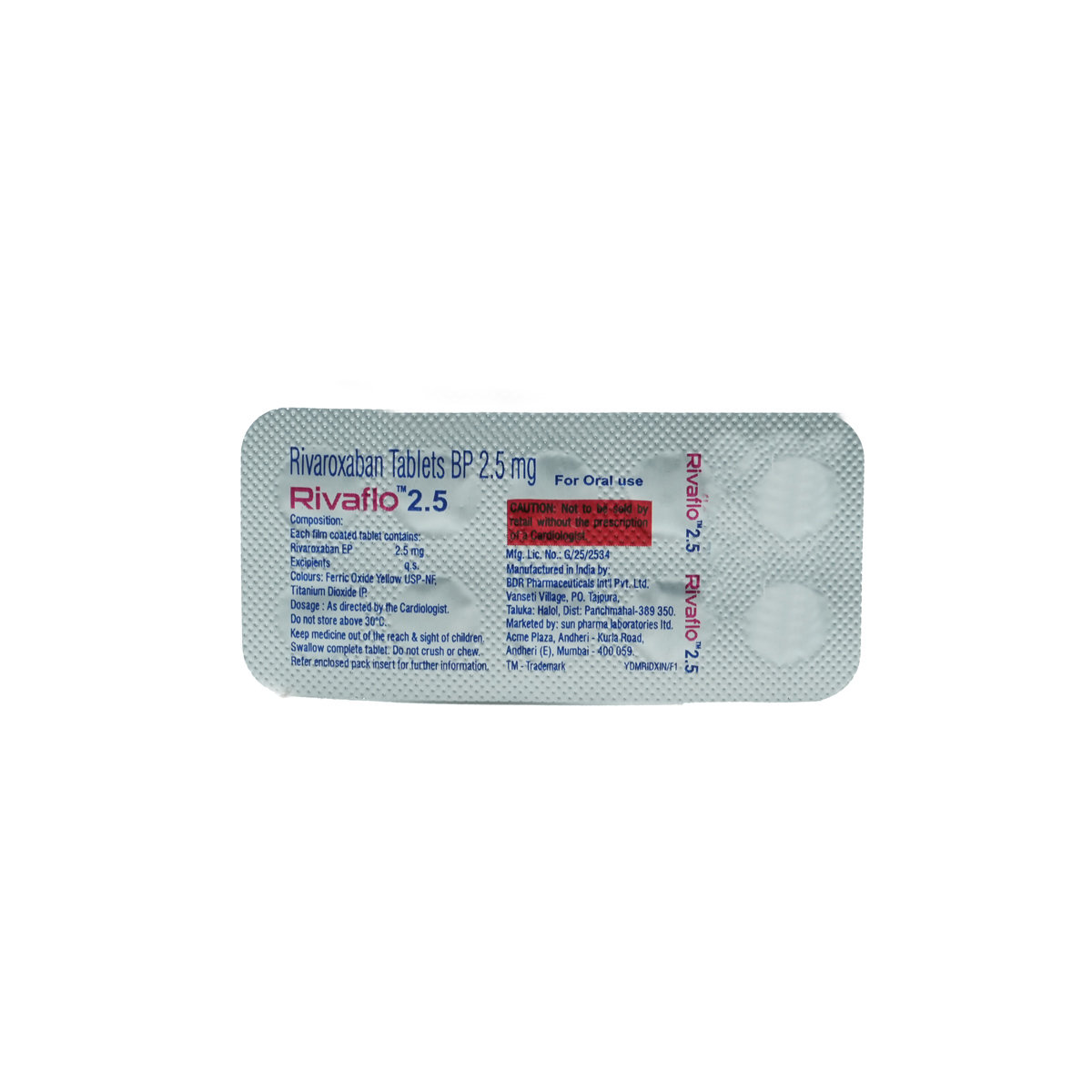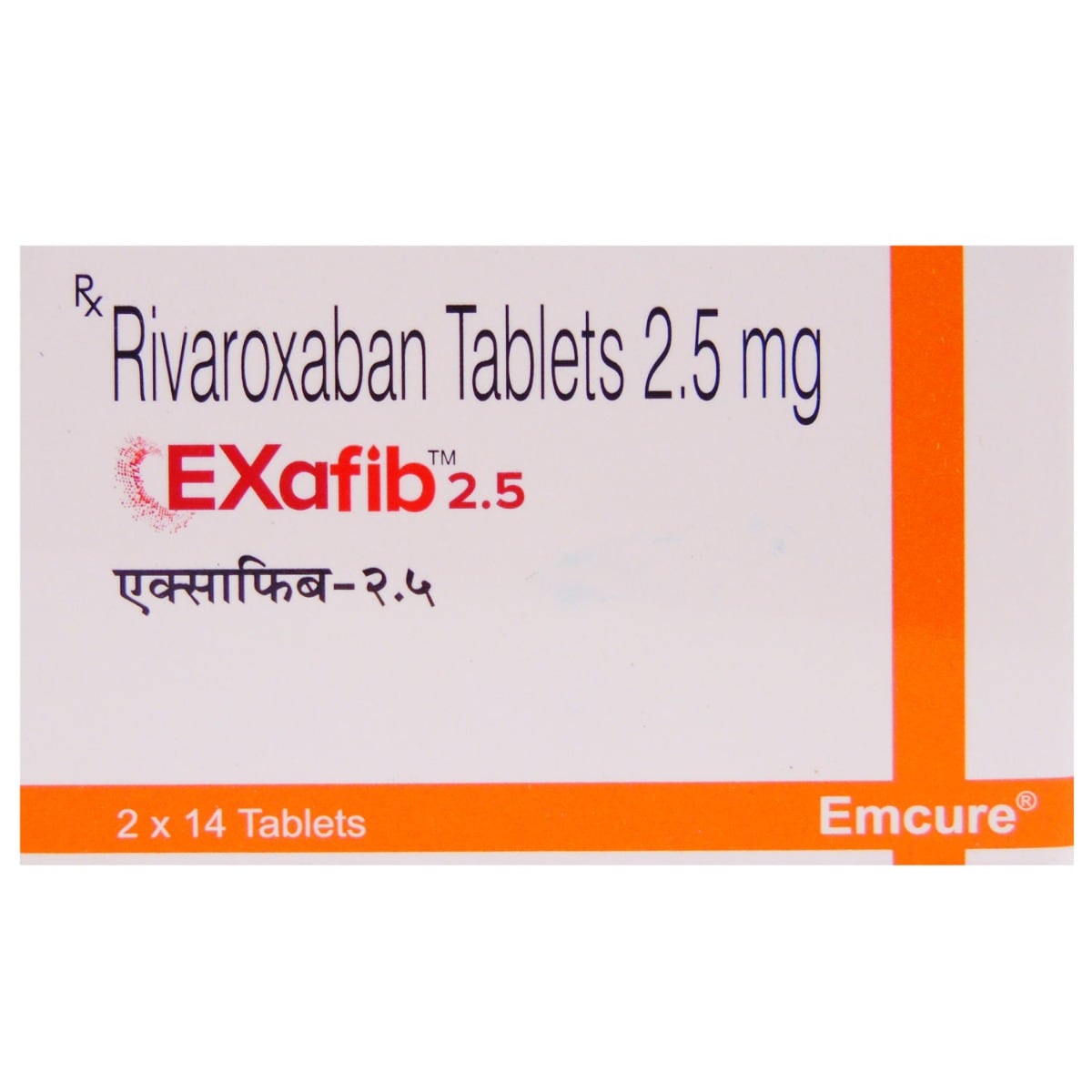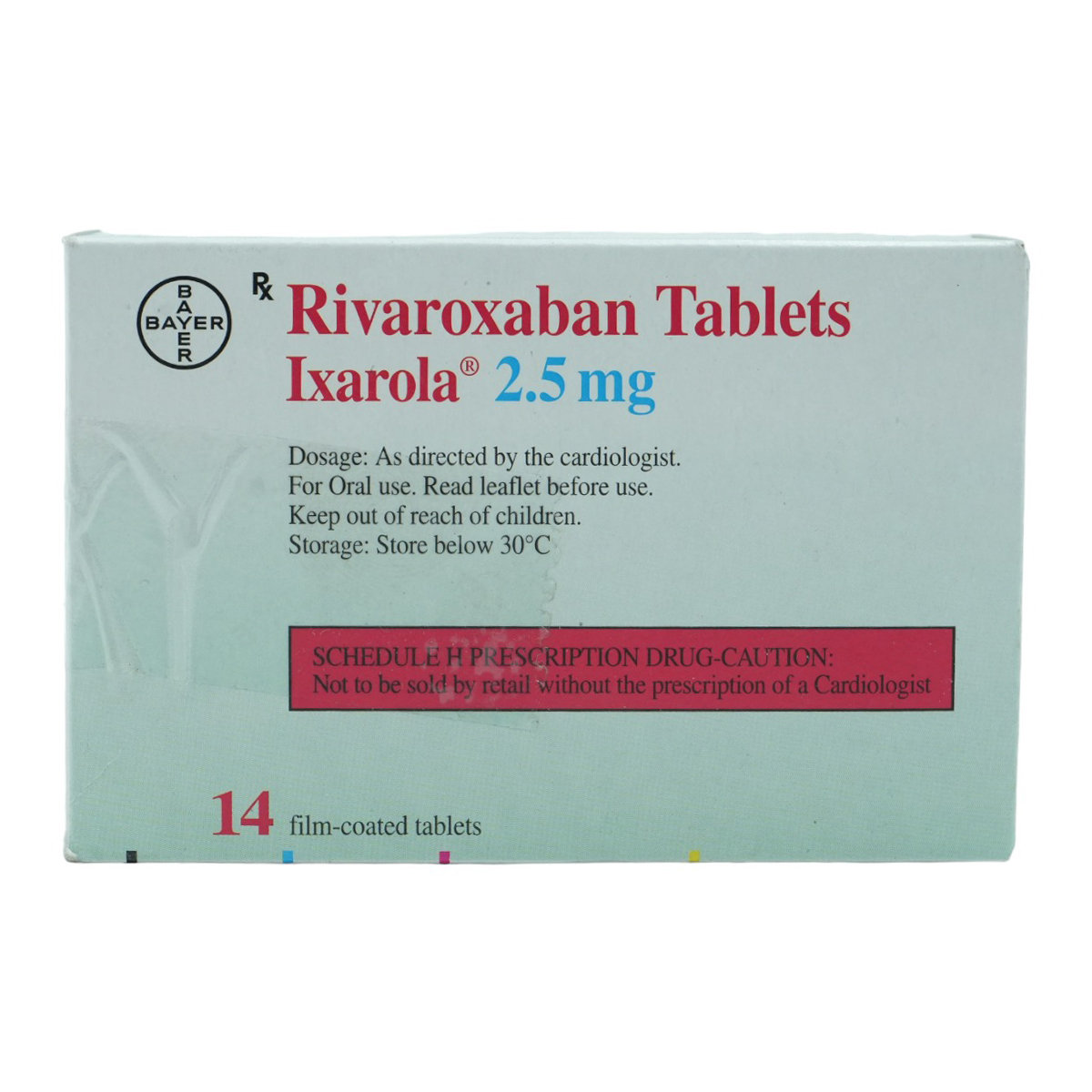Rivatop-2.5 Tablet 14's


MRP ₹112
(Inclusive of all Taxes)
₹16.8 Cashback (15%)
Provide Delivery Location
Online payment accepted
 Prescription drug
Prescription drugWhats That
Composition :
Manufacturer/Marketer :
Consume Type :
Expires on or after :
Return Policy :
About RIVATOP-2.5 TABLETS
RIVATOP-2.5 TABLETS belongs to a class of drugs known as anticoagulants or blood thinner. RIVATOP-2.5 TABLETS is primarily used to prevent and treat deep vein thrombosis (blood clots in leg veins) and pulmonary embolism (blood clots in the lung) by reducing blood clot formation. Deep vein thrombosis is a medical condition in which blood clots form in deep veins usually in the legs. Pulmonary embolism is a condition in which a blood clot blocks the arteries in the lungs.
RIVATOP-2.5 TABLETS contains Rivaroxaban, a blood thinner that works by inhibiting the production of clotting factors by decreasing the action of vitamin K. This prevents the conversion of fibrinogen (soluble protein) to fibrin (insoluble protein), thereby preventing blood clots formation.
Take RIVATOP-2.5 TABLETS as prescribed. You are advised to take RIVATOP-2.5 TABLETS for as long as your doctor has prescribed it for you depending on your medical conditions. You may experience bleeding, anemia (low number of red blood cells), and nausea. Most of these side effects of RIVATOP-2.5 TABLETS do not require medical attention and gradually resolve over time. However, if the side effects are persistent, reach out to your doctor.
If you are known to be allergic to RIVATOP-2.5 TABLETS or any other medicines, please tell your doctor. If you are pregnant or breastfeeding, it is advised to consult a doctor before using RIVATOP-2.5 TABLETS . If you have a stomach ulcer, kidney or liver problems, high blood pressure, or bleeding problems, inform your doctor before taking RIVATOP-2.5 TABLETS . Talk to your doctor immediately if you are pregnant or breastfeeding.
Uses of RIVATOP-2.5 TABLETS
Directions for Use
Key Benefits
RIVATOP-2.5 TABLETS belongs to a class of drugs known as anticoagulants or blood thinner. RIVATOP-2.5 TABLETS is primarily used to prevent and treat deep vein thrombosis (blood clots in leg veins) and pulmonary embolism (blood clots in the lung) by reducing blood clot formation. RIVATOP-2.5 TABLETS works by inhibiting the production of clotting factors by decreasing the action of vitamin K. This prevents the conversion of fibrinogen (soluble protein) to fibrin (insoluble protein), thereby preventing blood clots formation.
Storage
Drug Warnings
RIVATOP-2.5 TABLETS should be used with caution in children. Prolonged use of RIVATOP-2.5 TABLETS may cause hair loss. Regular blood tests are recommended while taking RIVATOP-2.5 TABLETS to check the time taken for your blood to clot and the level of platelets (blood cells). If you are known to be allergic to RIVATOP-2.5 TABLETS or any other medicines, please tell your doctor. If you are pregnant or breastfeeding, it is advised to consult a doctor before using RIVATOP-2.5 TABLETS . If you have a stomach ulcer, kidney or liver problems, high blood pressure, or bleeding problems, inform your doctor before taking RIVATOP-2.5 TABLETS . Talk to your doctor immediately if you are pregnant or breastfeeding.
Drug-Drug Interactions
Drug-Drug Interactions
Login/Sign Up
Co-administration of Tenecteplase and Rivatop-2.5 Tablet can increase the risk of bleeding.
How to manage the interaction:
Co-administration of Tenecteplase and Rivatop-2.5 Tablet can lead to an interaction, it can be taken if advised by your doctor. However, if you experience any symptoms like unusual bleeding or bruising, dizziness, lightheadedness, red or black, tarry stools, coughing up or vomiting fresh or dried blood that looks like coffee grounds, severe headache, and weakness, consult the doctor immediately. Do not stop using any medications without a doctor's advice.
Coadministration of Itraconazole and Rivatop-2.5 Tablet may significantly increase the blood levels of Rivatop-2.5 Tablet. This can increase the risk of serious bleeding complications.
How to manage the interaction:
Itraconazole and Rivatop-2.5 Tablet may interact, but if a doctor prescribes them, you can still use them. If you have dizziness, lightheadedness, red or black, tarry stools, coughing up or vomiting fresh or dried blood that resembles coffee grounds, a severe headache, weakness, or any of these symptoms, consult a doctor. Never discontinue taking a medication without consulting a doctor.
Co-administration of urokinase and Rivatop-2.5 Tablet can increase the risk of bleeding problems.
How to manage the interaction:
Co-administration of urokinase and Rivatop-2.5 Tablet can lead to an interaction, it can be taken if advised by your doctor. However, if you experience any symptoms like unusual bleeding or bruising, dizziness, lightheadedness, red or black, tarry stools, coughing up or vomiting fresh or dried blood that looks like coffee grounds, severe headache, and weakness, consult the doctor immediately. Do not stop using any medications without a doctor's advice.
Coadministration of Rivatop-2.5 Tablet and Apixaban co-administration may raise the risk of unusual bleeding.
How to manage the interaction:
Even though combining Rivatop-2.5 Tablet and Apixaban may cause an interaction, it is still possible to take it if your doctor advises you to. Consult a doctor if you experience symptoms like blood in your urine or stool (or a black stool), severe bruising, prolonged nosebleeds, feeling dizzy or lightheaded, weakness or severe headache, vomiting blood or coughing up blood, heavy menstrual bleeding (in women), difficulty breathing, or chest pain. Without consulting a doctor, never stop taking any medications.
Co-administration of Voriconazole and Rivatop-2.5 Tablet can increase the blood levels of Rivatop-2.5 Tablet and increase the risk of bleeding.
How to manage the interaction:
Co-administration of Voriconazole and Rivatop-2.5 Tablet can lead to an interaction, it can be taken if advised by a doctor. However, if you experience dizziness, red or black, tarry stools, severe headache, and weakness, consult the doctor immediately. Do not stop using any medications without a doctor's advice.
Co-administration of heparin and Rivatop-2.5 Tablet can increase the risk of bleeding problems.
How to manage the interaction:
Co-administration of heparin and Rivatop-2.5 Tablet can lead to an interaction, it can be taken if advised by a doctor. However, if you experience any symptoms like unusual bleeding or bruising, dizziness, lightheadedness, red or black, tarry stools, coughing up or vomiting fresh or dried blood that looks like coffee grounds, severe headache, and weakness, consult the doctor immediately. Do not stop using any medications without a doctor's advice.
Co-administration of tirofiban and Rivatop-2.5 Tablet can increase the risk of bleeding problems.
How to manage the interaction:
Co-administration of tirofiban and Rivatop-2.5 Tablet can lead to an interaction, it can be taken if advised by your doctor. However, if you experience any symptoms like unusual bleeding or bruising, dizziness, lightheadedness, red or black, tarry stools, coughing up or vomiting fresh or dried blood that looks like coffee grounds, severe headache, and weakness, consult the doctor immediately. Do not stop using any medications without a doctor's advice.
Co-administration of Fosphenytoin and Rivatop-2.5 Tablet can reduce the blood levels of Rivatop-2.5 Tablet and increase the risk of bleeding problems.
How to manage the interaction:
Co-administration of Fosphenytoin and Rivatop-2.5 Tablet can lead to an interaction, it can be taken if advised by your doctor. However, if you notice any unusual bleeding or bruising, other signs of bleeding, dizziness, lightheadedness, red or black tarry stools, coughing up or vomiting blood, severe headache, and weakness, you should contact your doctor immediately. Do not stop using any medications without first talking to your doctor.
Co-administration of phenytoin and Rivatop-2.5 Tablet may reduce the blood levels of Rivatop-2.5 Tablet, which may increase the risk of bleeding problems.
How to manage the interaction:
Co-administration of phenytoin and Rivatop-2.5 Tablet can lead to an interaction, it can be taken if advised by a doctor. consult the doctor immediately for any queries. Do not stop using any medications without a doctor's advice.
Coadministration of piroxicam and Rivatop-2.5 Tablet can increase the risk of bleeding problems.
How to manage the interaction:
Co-administration of piroxicam and Rivatop-2.5 Tablet can lead to an interaction, it can be taken if advised by a doctor. However, if you experience any symptoms like unusual bleeding or bruising, dizziness, lightheadedness, red or black, tarry stools, coughing up or vomiting fresh or dried blood that looks like coffee grounds, severe headache, and weakness, consult the doctor immediately. Do not stop using any medications without a doctor's advice.
Drug-Food Interactions
Drug-Food Interactions
Login/Sign Up
Diet & Lifestyle Advise
- Avoid making any changes in your diet without first talking to your doctor.
- Cranberry juice, grapefruit juice, noni juice, and pomegranate juice may interact with RIVATOP-2.5 TABLETS and lead to unwanted side effects. Hence try to avoid these juices while taking RIVATOP-2.5 TABLETS .
- Avoid drinking alcohol as it increases the risk of gastrointestinal ulcer/bleeding.
Side Effects of RIVATOP-2.5 TABLETS
- Bleeding
- Anaemia (low number of red blood cells)
- Nausea
Habit Forming
Therapeutic Class
All Substitutes & Brand Comparisons
RX
Out of StockRivaban 2.5 Tablet 14's
Lupin Ltd
₹56.5
(₹3.64 per unit)
49% CHEAPERRX
Out of StockRebless 2.5 Tablet 10's
Mankind Pharma Pvt Ltd
₹49
(₹4.41 per unit)
38% CHEAPERRX
Rpigat 2.5 mg Tablet 10's
Natco Pharma Ltd
₹51.5
(₹4.64 per unit)
35% CHEAPER
Product Substitutes
Drug-Diseases Interactions
Drug-Diseases Interactions
Login/Sign Up
FAQs
No, you are not recommended to stop taking RIVATOP-2.5 TABLETS without consulting your doctor to worsen the condition. Therefore, take RIVATOP-2.5 TABLETS for as long as your doctor has prescribed it.
No, RIVATOP-2.5 TABLETS is not expected to cause weight gain. If you notice unexpected weight gain and think it is because of this RIVATOP-2.5 TABLETS , immediately consult your doctor and inform him about it.
RIVATOP-2.5 TABLETS has many beneficial effects, but it has the ability to make you bleed more than normal. Even with minor injuries as it decreases your ability to blood clotting. Sometimes RIVATOP-2.5 TABLETS may cause severe bleeding that may be dangerous and may require urgent medical care. This risk may be increased in people taking RIVATOP-2.5 TABLETS along with other blood thinner medicines.
Avoid taking grapefruit and grapefruit juice while taking RIVATOP-2.5 TABLETS , and it contains compounds that slow down the metabolism of RIVATOP-2.5 TABLETS and increase the activity leading to bleeding.
It is not known that RIVATOP-2.5 TABLETS causes hair loss. Kindly contact your doctor.
RIVATOP-2.5 TABLETS is a type of medicine known as an anticoagulant. RIVATOP-2.5 TABLETS works by stopping a clotting factor called factor Xa from working. This thins your blood, so it takes longer to clot.
Drug-Drug Interactions Checker List
- WARFARIN
- ENOXAPARIN
- LOPINAVIR
- RITONAVIR
- ASPIRIN
- IBUPROFEN
- CARBAMAZEPINE
- PHENYTOIN
- ITRACONAZOLE
- KETOCONAZOLE
- FLUCONAZOLE
- ERYTHROMYCIN
- CLARITHROMYCIN
Special Advise
You should have regular platelet count, factor V assay, fibrinogen level test, prothrombin time test (PT or PT-INR) and the INR, or international normalized ratio to analyze your blood clotting time.
Disease/Condition Glossary
Deep vein thrombosis (blood clots in legs) is a medical condition in which blood clots form in deep veins usually in the legs. The symptoms include leg pain or swelling. Pulmonary embolism (blood clots in the lung) is a chronic condition that occurs as the blood clots break and travel to the lungs from deep veins in the legs or other parts of the body. The symptoms of pulmonary embolism include cough, chest pain, and shortness of breath.

Have a query?
Buy best Cardiology products by
Torrent Pharmaceuticals Ltd
Sun Pharmaceutical Industries Ltd
Lupin Ltd
Intas Pharmaceuticals Ltd
Cipla Ltd
Micro Labs Ltd
Macleods Pharmaceuticals Ltd
Abbott India Ltd
Ajanta Pharma Ltd
Ipca Laboratories Ltd
Eris Life Sciences Ltd
Mankind Pharma Pvt Ltd
Lloyd Healthcare Pvt Ltd
Dr Reddy's Laboratories Ltd
Glenmark Pharmaceuticals Ltd
Emcure Pharmaceuticals Ltd
Alembic Pharmaceuticals Ltd
Alkem Laboratories Ltd
East West Pharma India Pvt Ltd
USV Pvt Ltd
Zydus Healthcare Ltd
Aristo Pharmaceuticals Pvt Ltd
Elbrit Life Sciences Pvt Ltd
J B Chemicals & Pharmaceuticals Ltd
Zydus Cadila
Akumentis Healthcare Ltd
Alteus Biogenics Pvt Ltd
Hbc Life Sciences Pvt Ltd
Fusion Health Care Pvt Ltd
Troikaa Pharmaceuticals Ltd
La Renon Healthcare Pvt Ltd
Corona Remedies Pvt Ltd
Jubilant Lifesciences Ltd
Medley Pharmaceuticals Ltd
Knoll Healthcare Pvt Ltd
Msn Laboratories Pvt Ltd
Zuventus Healthcare Ltd
Cadila Pharmaceuticals Ltd
Blue Cross Laboratories Pvt Ltd
Lividus Pharmaceuticals Pvt Ltd
Morepen Laboratories Ltd
Ranmarc Labs
Shrrishti Health Care Products Pvt Ltd
Sanofi India Ltd
Steris Healthcare
Elder Pharmaceuticals Ltd
Primus Remedies Pvt Ltd
Unison Pharmaceuticals Pvt Ltd
Eswar Therapeutics Pvt Ltd
Knoll Pharmaceuticals Ltd
Tas Med India Pvt Ltd
Systopic Laboratories Pvt Ltd
Indiabulls Pharmaceuticals Pvt Ltd
Leeford Healthcare Ltd
Sinsan Pharmaceuticals Pvt Ltd
Biochem Pharmaceutical Industries Ltd
Cadila Healthcare Ltd
Azkka Pharmaceuticals Pvt Ltd
Nirvana India Pvt Ltd
Orsim Pharma
Prevego Healthcare & Research Pvt Ltd
Econ Healthcare
Elinor Pharmaceuticals (P) Ltd
FDC Ltd
Sunij Pharma Pvt Ltd
Nicholas Piramal India Ltd
Astra Zeneca Pharma India Ltd
Pfizer Ltd
Lia Life Sciences Pvt Ltd
Shine Pharmaceuticals Ltd
Elicad Pharmaceuticals Pvt Ltd
Indoco Remedies Ltd
Proqol Health Care Pvt Ltd
Vasu Organics Pvt Ltd
Biocon Ltd
Opsis Care Lifesciences Pvt Ltd
Johnlee Pharmaceuticals Pvt Ltd
Merck Ltd
Wockhardt Ltd
Auspharma Pvt Ltd
Ergos Life Sciences Pvt Ltd
Lakshya Life Sciences Pvt Ltd
Ordain Health Care Global Pvt Ltd
Pficus De Med Pvt Ltd
ALICAN PHARMACEUTICAL PVT LTD
RPG Life Sciences Ltd
Glynis Pharmaceuticals Pvt Ltd
Orris Pharmaceuticals
Samarth Life Sciences Pvt Ltd
Aprica Pharmaceuticals Pvt Ltd
Aretaeus Pharmaceuticals Pvt Ltd
Koye Pharmaceuticals Pvt Ltd
Neocardiab Care
Retra Life Science Pvt Ltd
Alniche Life Sciences Pvt Ltd
Alvio Pharmaceuticals Pvt Ltd
Arkas Pharma Pvt Ltd
Atos Lifesciences Pvt Ltd
Divine Savior Pvt Ltd
Metalis Lifesciences Pvt Ltd
Alcohol
Safe if prescribed
You are recommended to avoid consumption of alcohol with RIVATOP-2.5 TABLETS as it may increase the risk of bleeding.
Pregnancy
Consult your doctor
Tell your doctor before using RIVATOP-2.5 TABLETS because it may cause harmful effects. So, only use in that condition when a doctor is prescribed.
Breast Feeding
Consult your doctor
RIVATOP-2.5 TABLETS may pass into breast milk. Therefore consult your doctor.
Driving
Safe if prescribed
RIVATOP-2.5 TABLETS usually does not affect your ability to drive or operate machinery.
Liver
Consult your doctor
Take RIVATOP-2.5 TABLETS with caution, especially if you have a history of Liver diseases/conditions. The dose may be adjusted by your doctor as required.
Kidney
Consult your doctor
Take RIVATOP-2.5 TABLETS with caution, especially if you have a history of Kidney diseases/conditions. The dose may be adjusted by your doctor as required.
Children
Safe if prescribed
RIVATOP-2.5 TABLETS is not approved for children. Therefore RIVATOP-2.5 TABLETS is not safe for children.


